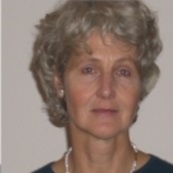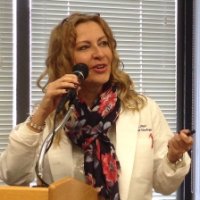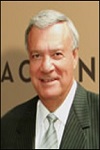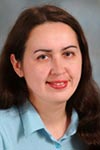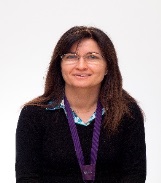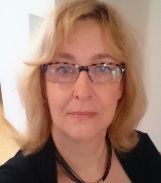About Conference
We delightfully invite all the participants across the world to attend "International Conference on Immunology Research", which aims for “Technological Innovations in Immunology’’, to be held during September 16-17, 2022 at New York, USA. Our main motto is to unify individuals in the scholarly community and society keen on immunology to deliver their talks on the current trends and significant issues related to research and clinical trials important for the public to be shared. Euro Immunology 2022 acquires a wide platform for Immunologists, Doctors, Researchers, Young Researchers, Business Delegates to exchange ideas and knowledge.
Why to attend?
With members from around the world focused on learning about global trends on Immunology Research and its advances in therapeutic and diagnostic market, this is your best opportunity to reach the largest assemblage of participants from the Immunology Research community. This particular conference conduct presentations, distributes information, conducts meetings with current and potential scientists, make a splash with new drug developments, and receive name recognition at this 2 days event. World renowned speakers, deliver speech on the most recent therapeutic and diagnostic techniques, developments in vaccine and immunity. Immunological and Biological Challenges are hallmarks of this Euro Immunology 2022 conference.
Who should attend?
-
Microbiologists
-
Bacteriologists
-
Virologists
-
Vaccine Immunologists
-
Parasitologists
-
Mycologists
-
Pathologists
-
Pharmacists
-
Epidemiologists
-
Health Care Professionals
-
Infectious Diseases Specialists
-
Infection Prevention and Infection Control Specialists
Targete Audience:
-
Directors, Board Members, Presidents, Vice Presidents, Deans and Head of the Departments
-
Infectious Diseases Researchers, Scientists, Faculties, Students
-
Infectious Diseases Associations and Societies
-
Medical Colleges
-
Pharmaceutical Companies and Industries
-
Medical Devices Manufacturing Companies
-
Drug Manufacturing Companies and Industries
-
Laboratory Technicians and Diagnostic Companies
-
Business Entrepreneurs and Industrialists
-
Training Institutes
-
Software Developing Companies
-
Data Management Companies
Scientific Sessions
Session 1: Clinical Immunology
Clinical Immunology deals with diseases that are caused by the disorders of immune system i.e., abnormal growth of any cellular tissues of the system, hypersensitivities as in asthma and other allergies, immune system failure. It also includes the diseases of other systems, where immune reactions play major role in the clinical aspects and pathology. It is divided into two categories: Immunodeficiency, in which there is inadequate response attained by the immune system, whereas in the case of autoimmunity the host body itself attacks its own immune system.
Session 2: Diagnostic Immunology
Diagnostic Immunology is a method by which we can diagnose the disease caused by a particular infectious microorganism. This relies on antigen-antibody reaction for detection of the disease. Immunologic methods are used as tools to treat and prevent of diseases such as infectious and immune-mediated diseases. The field of diagnostic immunology has advanced significantly over the years. Immunodiagnostics is a method which relies on the antigen-antibody reaction for the detection of a disease.
Session 3: Computational Immunology
Computational Immunology is a field of science which encompasses the high-throughput genomic and bioinformatics approaches to immunology. The Rapid growth in the field of biotechnology with the major advances in information technology has more potential to radically transform immunology. The field's objective is to convert Biological data into computational problems, so that we can solve these problems using mathematical and computational approaches and then convert these results into the immunologically meaningful interpretations.
Session 4: Immunomics
Immunomics is the study of immune system regulation and response to pathogens using genome-wide approaches. Scientists studying the immune system have had to search for antigens on an individual basis and identify the protein sequence of these antigens that stimulate an immune response. Scientists are able to visualize biological networks and infer interrelationships between genes and proteins; recently, these technologies revealed immune system’s most distinguishing features are the continuous motility, turnover, plasticity of its constituent cells.
Session 5: Immunotherapy
Immunotherapy is the treatment of disease by inducing, enhancing, or suppressing an immune response. It is also called as biologic therapy, It is a kind of cancer treatment which will boosts the body's natural defenses against cancer. It uses substances that are made by the body or in with in a laboratory to improve or restore immune system function. It is made up of white blood cells, organs, tissues of the lymph system. The immune system is framed up of white blood cells and the organs plus tissues of your lymph system, like the bone marrow.
Session 6: Immune Deficiency
Immunodeficiency is a state in which the immune system's ability to fight infectious disease and cancer is compromised or entirely absent. Most cases of immunodeficiency are acquired/secondary due to extrinsic factors that affect the patient's immune system. Immune system protects the body from germs and other threats. But sometimes it gets off track and has a weaker response to these threats. It can result medications & illness. It may be present from birth as a genetic disorder known as primary immune deficiency.
Session 7: Autoimmunity and Allergies
Autoimmunity is the system of immune responses of an organism against its own healthy cells and tissues. Any disease that results from such immune response is termed an "autoimmune disease".In an autoimmune disease, the immune system mistakes part of your body as foreign. It releases proteins called autoantibodies that attack healthy cells. Allergies, are a number of conditions caused by hypersensitivity of the immune system to typically harmless substances in the environment. Allergy symptoms occur when your immune system overreacts to an allergen.
Session 8: Antibody Therapies
Antibody Therapy is a form of immunotherapy that uses monoclonal antibodies (mAb) to bind to certain cells, proteins which stimulate the patient's immune system to attack those cells. Antibodies are a key component of the adaptive immune response, in both the recognition of foreign antigens and stimulation of an immune response to them. Antibodies are proteins made by immune system that bind to specific markers on cells or tissues. mAb kill cancer cells directly, or block development of tumor blood vessels, or help immune system to kill cancer cells.
Market Analysis
Market Analysis
Immunology Market is poised to value over USD 151.2 billion by 2027 end at a CAGR of over 8.1% during the forecast period 2020 to 2027.Future Wise Market Research has instantiated a report that provides an intricate analysis of Immunology Market trends that shall affect the overall market growth. Furthermore, it includes detailed information on the graph of profitability, SWOT analysis, market share and regional proliferation of this business. Moreover, the report offers insights on the current stature of prominent market players in the competitive landscape analysis of this market.
According to the research study conducted by Future Wise research analysts, the Immunology Market is anticipated to attain substantial growth by the end of the forecast period. The report explains that this business is predicted to register a noteworthy growth rate over the forecast period. This report provides crucial information pertaining to the total valuation that is presently held by this industry and it also lists the segmentation of the market along with the growth opportunities present across this business vertical.
North America stood at USD 46.17 billion in 2020 and is likely to hold the highest position in the market during the forecast period. This is due to the increasing prevalence of chronic ailments and the higher diagnosis rate of the patients that will boost the adoption of advanced immunology drugs in the region. Based on drug class, the monoclonal antibody (mAb) held a global immunology market share of about 64.5% in 2020 and is expected to dominate in the forthcoming years. This dominance is attributable to the increasing number of approvals for mAb by the government bodies to treat chronic ailments globally.
Past Conference Report
Past Conference Report
We would like to thank all of our wonderful keynotes, speakers, conference attendees, students, associations, media partners, exhibitors and guests for making Euro Immunology 2021 Webinar a successful Online event.
With the overwhelming success of the previous conferences, Conference series hosted the “Euro Immunology 2021 during November 08-09, 2021 with the theme “Navigating the Future of Immunology towards Better Quality Living” was a great success, where eminent speakers from various reputed institutions and organizations with their resplendent presence addressed the gathering.
Benevolent response and active participation was received from the renowned experts and Editorial Board Members of Conference series Journals as well as from the Immunologists, Immune Therapist, Physicians, researchers, students and leaders in Immunology, who made this event successful.
The Conference was carried out through various informative and cutting edge sessions, in which the discussions were held on the following thought provoking and celebrating scientific tracks:
-
Clinical Immunology
-
Diagnostic Immunology
-
Computational Immunology
-
Immunomics
-
Immunotherapy
-
Immune Deficiency
-
Autoimmunity and Allergies
-
Antibody Therapies
The adepts who promulgated the theme with their exquisite talk were:
-
Arije Ghannam, KininX, France
-
Claudia Gravekamp, Albert Einstein College of Medicine, USA
-
Soma Mondal Ghorai, Hindu College-University of Delhi, India
-
Daifulah Alzahrani, National Guard Hospitals, Saudi Arabia
-
Ilaria Giudiceandrea, United Kingdom
-
Lang Bao, Sichuan University, China
-
Yalda Hassanpour, Mashhad University of Medical Sciences, Iran
-
Amal F Al Dawi, Ibn Sina University, Sudan
-
Charles J Malemud, Case Western Reserve University School of Medicine, USA
-
Michael G Hanna, Vaccinogen Inc., USA.
-
Sharad Kumar Yadav, Veterinary University, India
